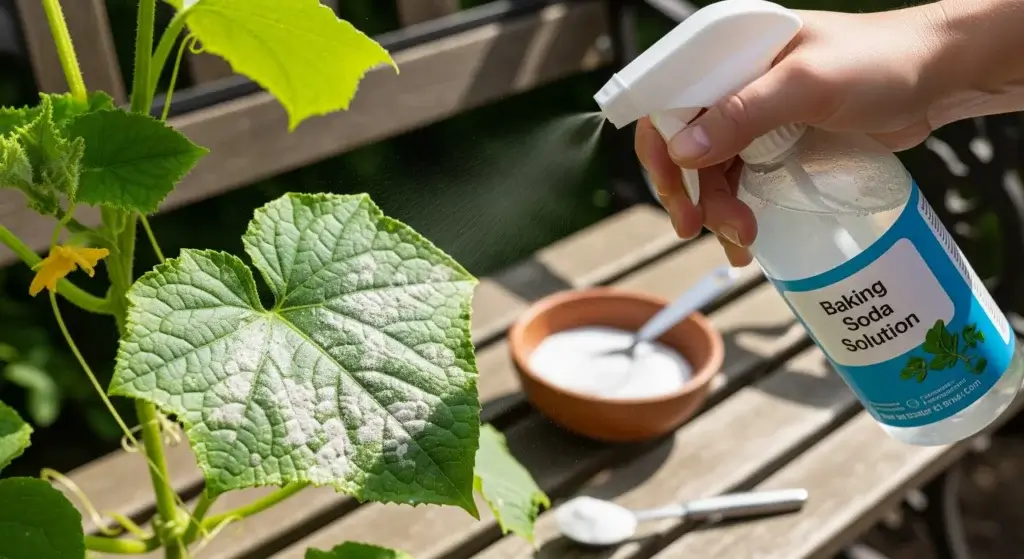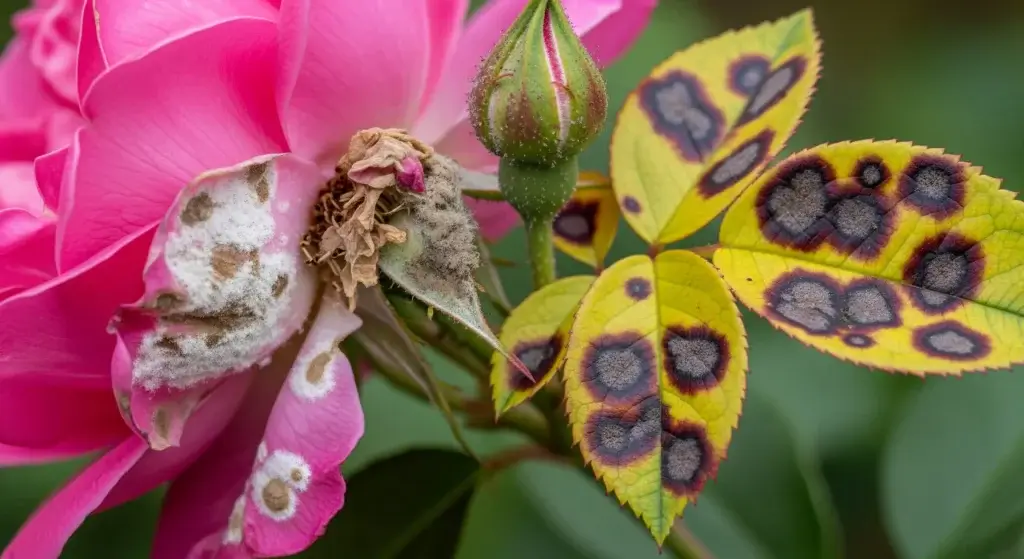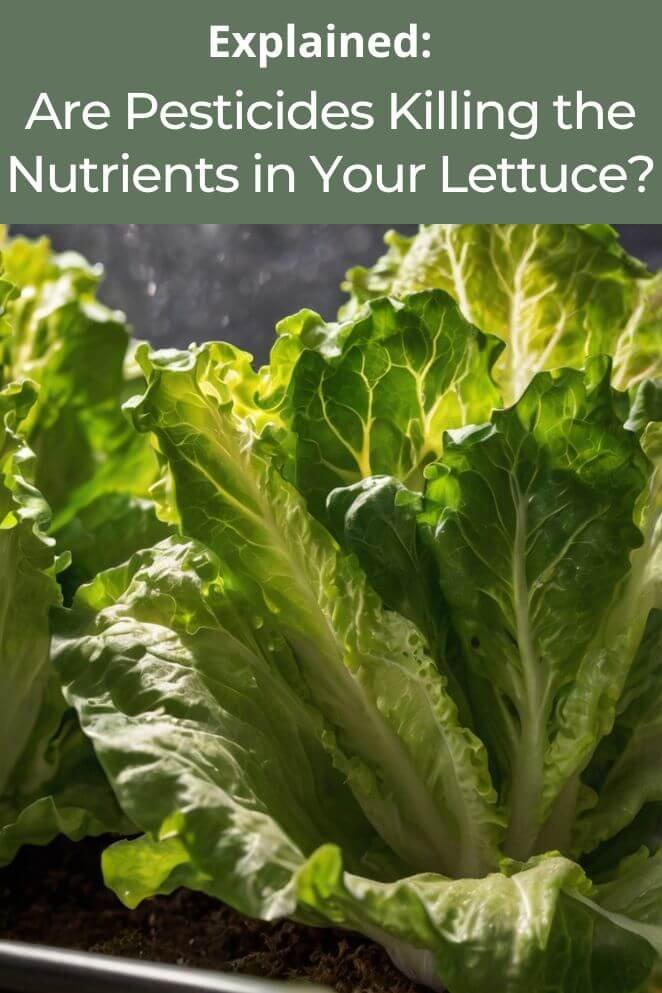
Lettuce – crisp, refreshing, and packed with vitamins – it’s a staple in salads, sandwiches, and countless healthy meals.
But what if the very thing meant to protect our leafy greens – pesticides – is actually stripping them of their goodness?
It’s a question that’s becoming increasingly important as we learn more about the potential impact of these chemicals on our food and our health.
Are the pesticides used in conventional agriculture diminishing the nutritional value of the lettuce we so readily consume?
This blog post will delve into the potential connection between pesticide use and nutrient levels in lettuce, exploring the risks and offering practical advice on how you can make informed choices to ensure you’re getting the most out of your greens.
Pesticides and Their Use
Pesticides are chemicals used in agriculture to protect crops from insects, weeds, and diseases.
Farmers rely on these chemicals to maximize yield and ensure their crops remain free from pests.
The most common types of pesticides include:
- Insecticides: Target and kill insects that feed on crops.
- Herbicides: Eliminate unwanted weeds that compete for nutrients.
- Fungicides: Prevent the growth of mold and fungi that can damage crops.
- Bactericides: Control bacteria that cause plant diseases.
- Rodenticides: Used to eliminate rodents like rats and mice.
In addition to these common types, there are also specialized pesticides like biopesticides, which are derived from natural materials (e.g., plants, bacteria) and tend to have lower toxicity levels compared to synthetic options.
Lettuce, being a delicate leafy green, is particularly susceptible to pest attacks.
To protect it, farmers often spray multiple pesticides throughout its growth cycle.
However, while pesticides help protect crops, their impact on the nutritional quality of lettuce is a growing concern.

How Pesticides Affect Lettuce and Its Nutrients
Pesticides don’t just target pests; they can also affect the plant itself.
Here are some ways pesticides may impact the nutrients in lettuce:
Reduction in essential nutrients
Pesticides can interfere with the plant’s ability to absorb nutrients from the soil.
This happens because some chemicals used in pesticides affect root function, making it harder for lettuce to take in essential vitamins and minerals.
As a result, lettuce may have lower levels of important nutrients such as:
- Vitamin C: An essential antioxidant that supports the immune system.
- Folate: Vital for cell growth and tissue development.
- Potassium: Helps regulate fluid balance, muscle contractions, and nerve signals.
When soil quality declines due to prolonged pesticide use, the nutrient content of the crops it produces also diminishes.
This means even if you eat lettuce regularly, you might not be getting as many nutrients as you expect.
Altered soil microbiology
Healthy soil contains a complex network of beneficial microorganisms that assist in breaking down organic matter and making nutrients available to plants.
Pesticides can disrupt this balance in several ways:
- Killing beneficial bacteria and fungi: These microbes help plants absorb essential nutrients. Their loss weakens the plant’s ability to take in key vitamins and minerals.
- Reducing nitrogen fixation: Some bacteria help convert atmospheric nitrogen into forms plants can use. When pesticides harm these bacteria, lettuce may experience nitrogen deficiencies, leading to weaker growth.
- Impacting soil pH levels: Chemical pesticides can alter soil acidity, affecting nutrient availability and uptake.
By damaging soil health, pesticides make it harder for lettuce to access the nutrients it needs, ultimately leading to less nutritious produce.
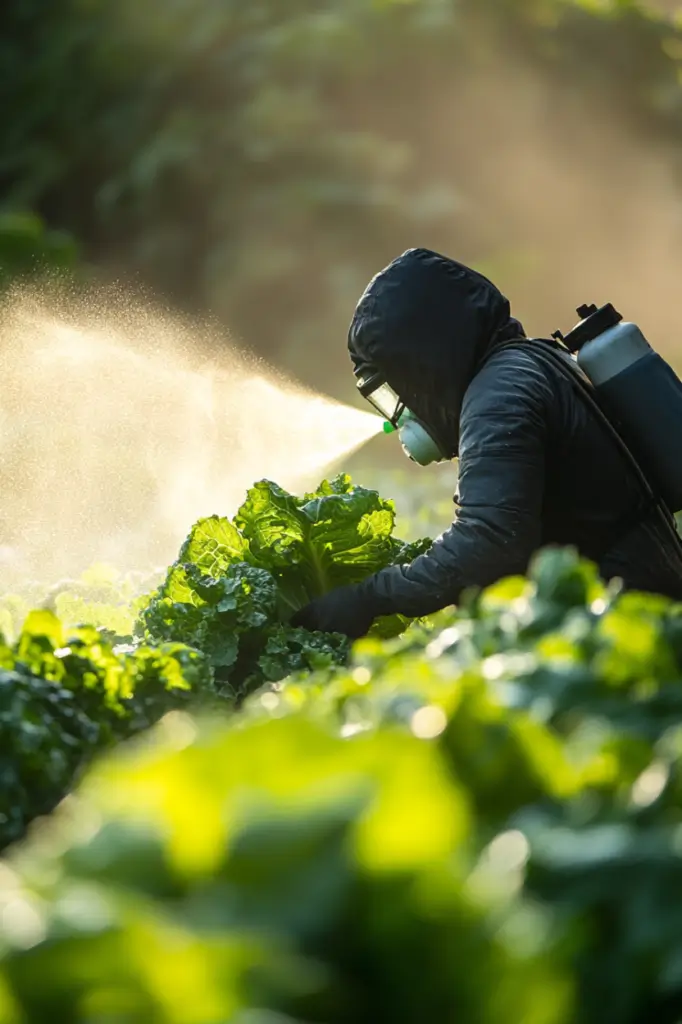
Loss of antioxidants
Lettuce is naturally rich in antioxidants, which protect the body from harmful free radicals.
However, exposure to pesticides can reduce these beneficial compounds.
Here’s how:
- Oxidative stress: Pesticides may trigger stress in lettuce plants, leading to a decrease in the production of antioxidants such as beta-carotene and flavonoids.
- Interference with plant metabolism: Some pesticides alter the way plants metabolize nutrients, leading to lower levels of polyphenols, which contribute to disease prevention in humans.
Antioxidants are crucial for overall health, helping to reduce inflammation and lower the risk of chronic diseases.
If pesticide exposure reduces these protective compounds in lettuce, consumers may not reap the full health benefits of this leafy green.
Residue contamination
Even after thorough washing, pesticide residues can remain on lettuce leaves.
These residues not only pose a health risk but may also interfere with nutrient absorption in the body. Here’s why:
- Some pesticides are fat-soluble: This means they can accumulate in human fat tissue over time, leading to long-term health effects.
- They may hinder vitamin absorption: Pesticides can interact with nutrients in food, making it harder for the body to absorb vitamins such as vitamin A, vitamin D, and vitamin E.
- Residues can be ingested unknowingly: Since lettuce is often eaten raw, there’s a higher chance of consuming pesticide residues compared to other vegetables that are cooked.
To minimize exposure, consider buying organic lettuce or using thorough washing methods like soaking in a vinegar or baking soda solution.
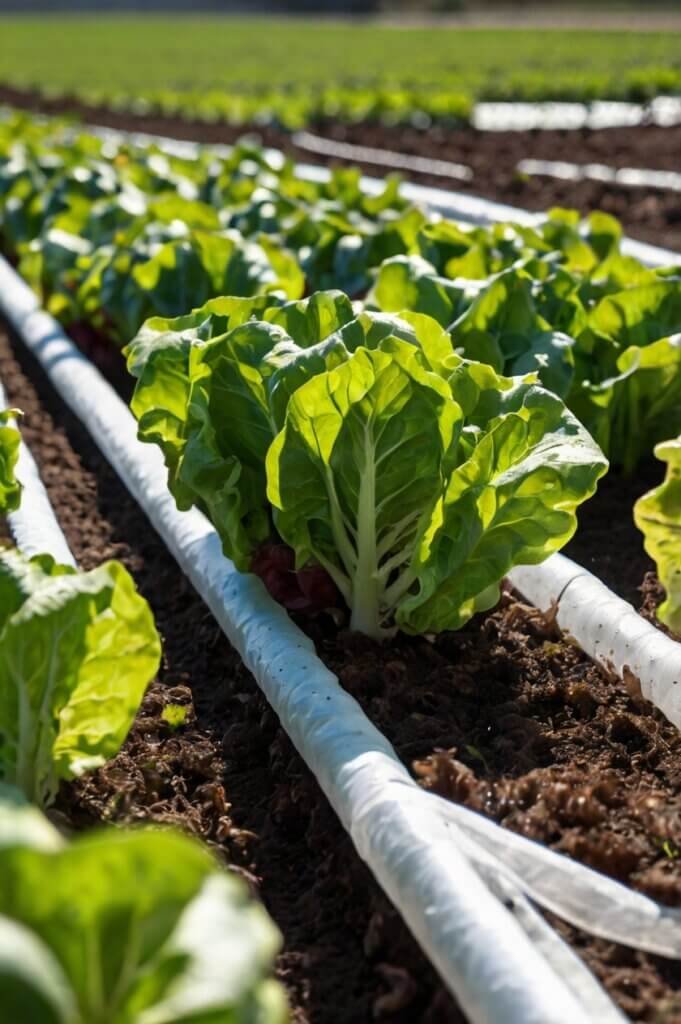
The Impact on Human Health
Eating pesticide-treated lettuce may expose you to harmful chemicals.
Over time, this exposure can lead to various health concerns, including:
1. Hormonal disruptions: Some pesticides contain chemicals that mimic or block hormones in the body, leading to issues like hormone imbalances, fertility problems, and developmental disorders.
2. Neurological effects: Certain pesticides are linked to nervous system damage, which can result in memory loss, tremors, and even an increased risk of conditions like Parkinson’s disease.
3. Weakened immune system: Continuous exposure to pesticides may weaken the immune system, making it harder for the body to fight off infections and diseases.
4. Potential Cancer Risks: Several pesticides have been classified as carcinogens, meaning they may increase the risk of cancer. While the long-term effects of consuming pesticide-treated lettuce are still being studied, minimizing exposure is recommended.
Conclusion
Pesticides play a significant role in modern agriculture, but their impact on lettuce’s nutritional quality and human health is concerning.
While they protect crops from pests, they may also reduce nutrient levels, disrupt soil health, and pose risks to consumers.
To minimize exposure, consider buying organic lettuce, washing produce thoroughly, or growing your own.
Being aware of what’s on your plate is the first step towards making healthier choices.
FAQs
Washing lettuce can reduce some pesticide residues but may not remove them entirely. Using a vinegar or baking soda soak can help, but the best way to avoid pesticides is to buy organic or grow your own lettuce.
Organic farming uses natural pesticides, which are generally considered safer than synthetic ones. However, organic lettuce still undergoes testing to ensure it meets safety standards.
Vitamins like vitamin C, folate, and antioxidants may be reduced in pesticide-treated lettuce due to soil degradation and plant stress.
Yes, methods like crop rotation, biological pest control, and organic fertilizers help protect plants without compromising nutrition or safety.


